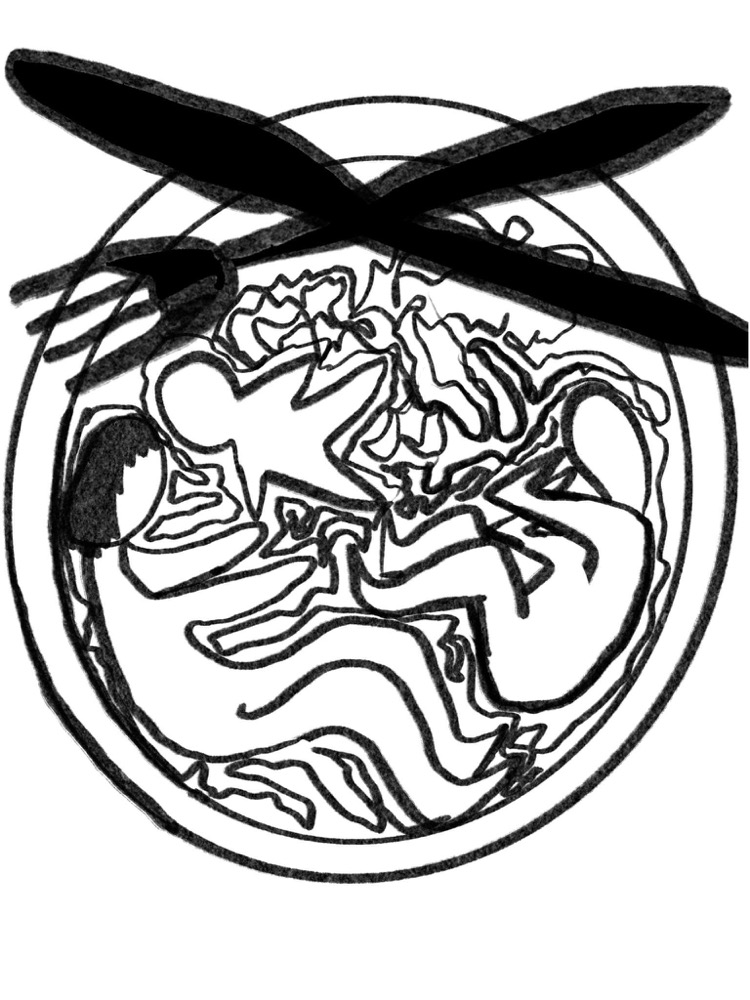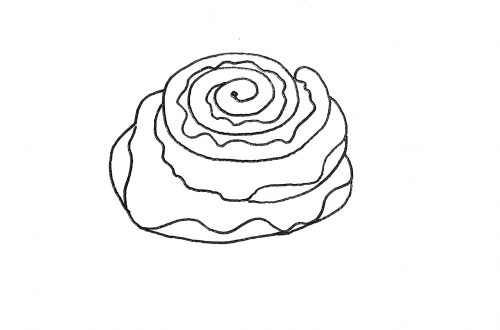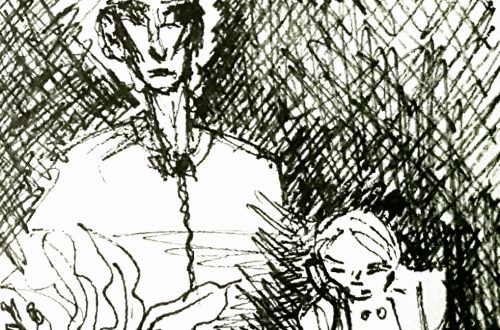by Shana Bestock
Shana’s essay appears in episode 29 of The Dirty Spoon Radio Hour.
I have a teenager arriving at my house to stay the weekend. I have dinner on the stove, Cheerios in the pantry, PB&J in the fridge. None of these things are typical for me. I’m 47 years old. But recently, I became a foster youth respite provider, taking care of teens for long weekends so they and their foster families can get some space from each other. The space that opened up for me, too, was much, much larger than I expected.
I know nothing about Jay until I open the door to him. He takes up space in my kitchen while trying to disappear – a large, messy teen, uncoordinated and jerky in both movement and communication, as if he can’t decide whether to punch through the borders between himself and the world or build more walls. I have made spaghetti and meatballs – something I’ve only read about and never actually made, but seems aggressively normal. Jay is my first respite kid and I’m clearly out to prove something. I spoon some onto my plate but can’t eat it – I’m not sure whether it’s excitement or appetite or fear. I’m all over the place inside my body. He eats half the pot at the first go. He doesn’t seem to care about my plate at all. Delight washes over me. I have fed a human being. I look at my plate and want to laugh. I eat dinner.
Afterward, Jay retreats into a virtual world, and I feel expansive, like I’ve broken through the forest on a long hike up to clear sky and mountain views. I wash the dishes and think about my parents.
Making this dinner cracked open a floodgate of understanding – not so much about myself, I’ve been in conversation with myself about food, hunger, control, power, and space for a long, long time – but for what my own Mom and Dad went through when my eating disorder first took root. I am very close to my parents, I’ve been working with kids and teens for decades, and I’ve done my share of therapy. But feeding foster youth has been a new adventure, putting me in a different relationship with my own body, boundaries, and capacity.
My home feels like it’s bursting with food now – all these cans and bags of rice and freezer full of fruit and veggie burgers that never used to occupy these cabinets and drawers. It’s part of my licensing; it’s required that I stockpile food in case of disaster. This, for the woman who lived for years with only a few yogurts in the fridge and protein powder in the pantry. I am fortified. And yet, that yogurt-girl wants to flail when it comes to producing a meal. It’s like I have a closet full of clothes and can easily dress for the weather and go out clothed, but what would I wear for a date or a job interview? Presentation is not my forte. I don’t meal.
But for these kids, I want to try. I am upfront with them – I’m more of a snack person, I explain, but let’s try for 1-2 meals together a day. One of the best tools in my recovery from a 35 year-old eating disorder was finally freeing myself from traditional meal expectations. I don’t need to tell these kids that I find that momentarily shutting out the world, focusing on nourishing my body, allowing it to be contrary and isolated – creating this space helps me build a more authentic and positive relationship with my body and reenter the world with less shame.
One of the best tools in my recovery from a 35 year-old eating disorder was finally freeing myself from traditional meal expectations.
Another foster kid, Bee, comes to stay for a few nights. Bee is trans, refuses to bathe, may or may not have a spectrum disorder, likes to go on walks and collect things like sticks and wrappers. I sense shame and confusion roiling around, control issues like a stash of fireworks ready to blow in all directions by an errant spark. I feel like I’ve met Bee in various forms a million times in my career. The foster parent called and texted for a week prior to the visit. She’s desperate for respite, at her wits’ end. I feel like a servant, she says. And they never eat what I make. Every day their tastes shift. And they hate eating with us at the table. I am doing my best but they are just driving me nuts.
Bee attacks their noodles with all ten fingers, cramming them into their mouth. They wake up with a hunger for eggs, excited to identify their desire, but subsequently terrified of the eggs’ sliminess. The pancakes are too sweet but the Cheerios look suspiciously healthy. Everything is debated, considered, analyzed, absorbed. Bee wants an apple, Bee rejects the apple. Bee is a kid whose own sensory experience is so profound it conflicts with their internal hunger.
Bee wants an apple, Bee rejects the apple. Bee is a kid whose own sensory experience is so profound it conflicts with their internal hunger.
I can see why this could drive a parent crazy, but for me it’s a giddy feeling. A roller-coaster ride that I’m actually enjoying. I’m curious and share that curiosity with Bee, and together we start to share the successes of meeting their hunger, how frustrating it is to miss the mark, how an about-face doesn’t need to be rational but might have a scientific explanation. Who am I to judge craziness around food? And I realize my giddiness is in being able to extend to Bee a compassion and acceptance I am unwilling to extend to myself.
For the entire weekend they are with me, they eat at the island, with me standing nearby or sitting at the table. I come to understand that their problems with food center around sensory experiences – food can be overstimulating, like a loud party. The thought of food is different from its reality. Texture, color, smell overwhelm. No wonder their tastes won’t settle – taste is the least important sense at play. I teach them how to make eggs in the microwave, how you can change the texture and feel of the eggs by cooking time. I let them eat noodles with their fingers, the fingers, noodles, and mouth becoming one big mush of movement. I’m not responsible for teaching table manners. Maybe they will be important later. Right now it feels more important to hold space for them to discover nourishment, to project a sense of acceptance and establish connection. Later in the weekend, they ask for a fork for their noodles and I am filled again with that rush of delight.
Right now it feels more important to hold space for them to discover nourishment, to project a sense of acceptance and establish connection.
But this delight high comes with a crash. Having a kid in my kitchen upends all of the protocols I have put in place to protect me from myself, to provide my own structure and limit my choices. I feel naked, like they can see all the stuff that came before in this kitchen. I feel a little trapped, like I used to feel at family dinners starting around age 13.
My parents were “granola” – literally. My dad made handmade granola in huge batches once a month, and they ate it every single morning with sliced banana. My mom had recipe cards, some signature dishes from the Moosewood Cookbook, and a lifetime of internalized gender roles at war with a fierce, formidable feminism. In my teen years two key events happened – Mom went on a low-fat diet for a breast cancer study, and she started working a lot more. Chicken, broccoli, and noodles became every dinner. My dad was a full partner in sharing the cooking duties – but not a full partner in sharing the creativity required to deviate from the script. He loved to eat, but his tastes were uncomplicated and after a day of social work and counseling broken families and failing marriages, he had no capacity for complex decisions around dinner. My mother felt a sense of failure. She has always wanted to nourish others with beauty.
I pause now, years later, to consider how my own failure to eat these basic dinners must have contributed to her guilt, confusion, and sorrow.
I always was aware of their pain, their worry, their terror for my survival – but I don’t think I ever really thought about the joy that came with the gig, and the tremendous loss. What a gift it can be, to feed a growing human being. That dinner could be a sunbreak in the storms of life. What grief it can be, to have a child reject that gift. That dinners could turn into a series of gray days without light.
What a gift it can be, to feed a growing human being. That dinner could be a sunbreak in the storms of life. What grief it can be, to have a child reject that gift.
I have always, always loved my family, loved our weirdness and power as a small but mighty foursome. So my discomfort in my body went to war with my desire to connect. When I was a teen I bought “100 Easy Ways to Cook Chicken” and took on the challenge of dressing up chicken breasts in new and exciting ways. I found this combination of control, limitation, creative expression, and responsibility incredibly soothing, even as I found actually sitting down to eat with my family increasingly nerve wracking. Cooking fostered pride in me; eating fostered shame.
Revisiting this history through a parental lens now eases up that trapped feeling. I’m able to extend empathy to my parents as I would a peer, a friend – and in doing so feel the empathy coming back at me. I marvel at how transformative the relationships between me and these foster youth are, and how little the youth themselves might ever realize the gift they are giving me.
Zee shows up with little warning, and my anxiety spikes in preparation for her arrival. I narrow my focus on my cupboards, try to plan a meal. I feel unprepared. She’s a great kid, I keep hearing. A “typical teen.” Not a picky eater.
Later I laugh at this – Zee turns out to be the pickiest eater I’ve had, but hiding it beautifully under a veneer of typical teen, which of course isn’t really ever a thing. All teens want to be typical, none of them are, which is about the only thing you can say is typical about a maturing human being. Zee is a young woman who has been navigating the system and society with keen intelligence. Who cultivates being just a little “basic” to slip under the radar, who burns with an unbasic fire. She’s a super-smart cookie, independent, powerful thinker, eager to battle authority, huge desire in a deceptively sweet and unassuming package. The kind of woman a certain kind of man finds terrifyingly confusing. She tells me stories of body shaming from her foster mother’s boyfriend, and the ways in which she protects herself against it but feels angry she can’t protect her sisters or her friends.
She tells me stories of body shaming from her foster mother’s boyfriend, and the ways in which she protects herself against it but feels angry she can’t protect her sisters or her friends.
I feel hunger all the time, and at Zee’s age I managed it by denying it. Zee manages the fire inside her by refusing to commit to her hunger. If I ask if I make her something, there’s a bunch of indeterminate sounds, some hair-swinging, and rapid eye movement, projecting a sort of confused dislocation from her own appetite. At first I want to honor her choices and put food out for her, allow her space to approach on her own terms. But as that goes uneaten, I start to worry that I’m ceding my own responsibility. So I start hanging out in the door to Zee’s room, draw her into conversation, then slowly draw the conversation into the kitchen. For all her self-sufficiency, she loves conversation and she follows me, and then I sneak attack – soup or pasta? When she makes a choice (soup) we dive right back into conversation and it’s the same thrill of directing an actor in a role who’s giving a fully committed, brilliant performance because they believe they did it all on their own, that all those bold, congruent, passionate choices were their sole discovery.
Eventually her bowl is finished, but before it is I experience an odd hunger myself – a hunger to eat with her. It’s not a social or familiar pressure, I’ve got nothing to prove, I’ve reached my nutritional needs for the day– and yet, this is a hunger as real as any other. I feel connected to her, and connected to her own hunger for both nourishment and the world.
Kids need structure, and traumatized young people grappling with instability and impermanence and loss of control need both structure and autonomy. I think about the choices my parents gave me, the choices I give my students and my colleagues. All of us contain inchoate appetites. Our emotions take up the room in our bodies, in the world.
I think about the choices my parents gave me, the choices I give my students and my colleagues. All of us contain inchoate appetites. Our emotions take up the room in our bodies, in the world.
My own parents must have talked in tense tones for hours, debating whether to let me eat whenever or demand participation in family meals. Whether to bargain or demand. Whether to conflate calories and family connection time, or separate them the way I would always separate my food as a child – casseroles distilled into essential ingredients. Peas over there, chicken over there, noodles over there – later to become protein over there, carbs over there, fat over there, each macronutrient accounted for. Did my parents physically experience the violent contradictory hungers in my young adult body as I restricted meals and crept into the kitchen late at night to feed myself out of sight? My desire to remove myself from the casserole of my family changed the taste of what it meant to be a family.
My desire to remove myself from the casserole of my family changed the taste of what it meant to be a family.
I am late to the joys of feeding a child a meal.
Refueling and nourishing ourselves is crucial, but sometimes our own needs are unclear. Trust in our bodies can be broken; signals can be indistinct or cacophonous, unreliable, crackling like static on the electrical pathways of our stressed-out brains. I find that helping others in these moments offers healing. Attending to someone else’s needs calms my own needs down.I am still scared of meals, but I work on continually reframing meals as a tool, not the goal. The goal is nourishment. Nourishment is a place where I feel confident. Where I can use my experience as an artist and educator, and share my pure and immediate joy in the science and imagination of cooking. To create something that previously didn’t exist.. I recognize the myriad ways trauma, anxiety, betrayal, distrust, and loss can show up in the body. I know 100 ways to cook chicken. I know infinitely more ways to cook up compassionate curiosity.
We’re having chicken and broccoli. There’s pasta if you want it. Come tell me about your day.
Original artwork by Alex Knighten

About the Author
Shana is a writer, educator, theater artist, and non-profit leader based in Seattle,WA. Currently she serves as the Executive Director of Penguin Productions, facilitating creative adventures in community arts to fuel the future with a focus on youth development and leadership, gender equity, and environmental justice. She is also a Fulbright Specialist, working internationally at the intersections of theater, social justice, and community building. From 2001-2018 Shana served as Seattle Public Theater’s Artistic and Education Director, directing professional theater as well as youth theater productions. She is a graduate of Leadership Tomorrow, a cohort of cross-sector leaders engaging with regional issues through an equity lens. Through her creative and community work, she strives to increase our capacity to connect, reflect, and create in order to make a more curious, compassionate and creative world. Learn more at www.penguinproductionsseattle.org and www.shanabestock.com






